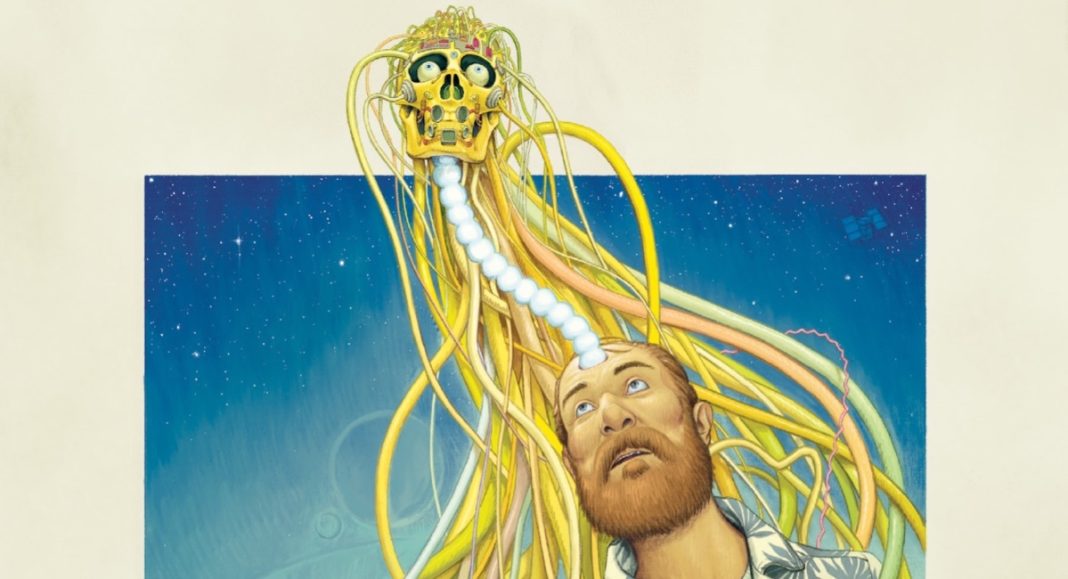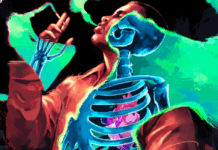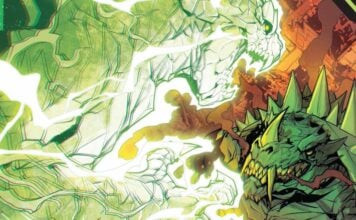At the end of April, Oni Press unveiled (via The Hollywood Reporter) the first look at Benjamin #1, the full-length comic debut of writer Ben H. Winters (EC’s Cruel Universe, Underground Airlines), creator of CBS’ acclaimed TV series Tracker and author of the Edgar Award-winning and Philip K. Dick Award-winning novel trilogy The Last Policeman, with artwork by rising star Leomacs (EC’s Epit
The first issue of Benjamin goes on sale June 18, 2025, with a final order cut-off date of May 26, 2025 (which means: order yours at your local comic book shop today!)
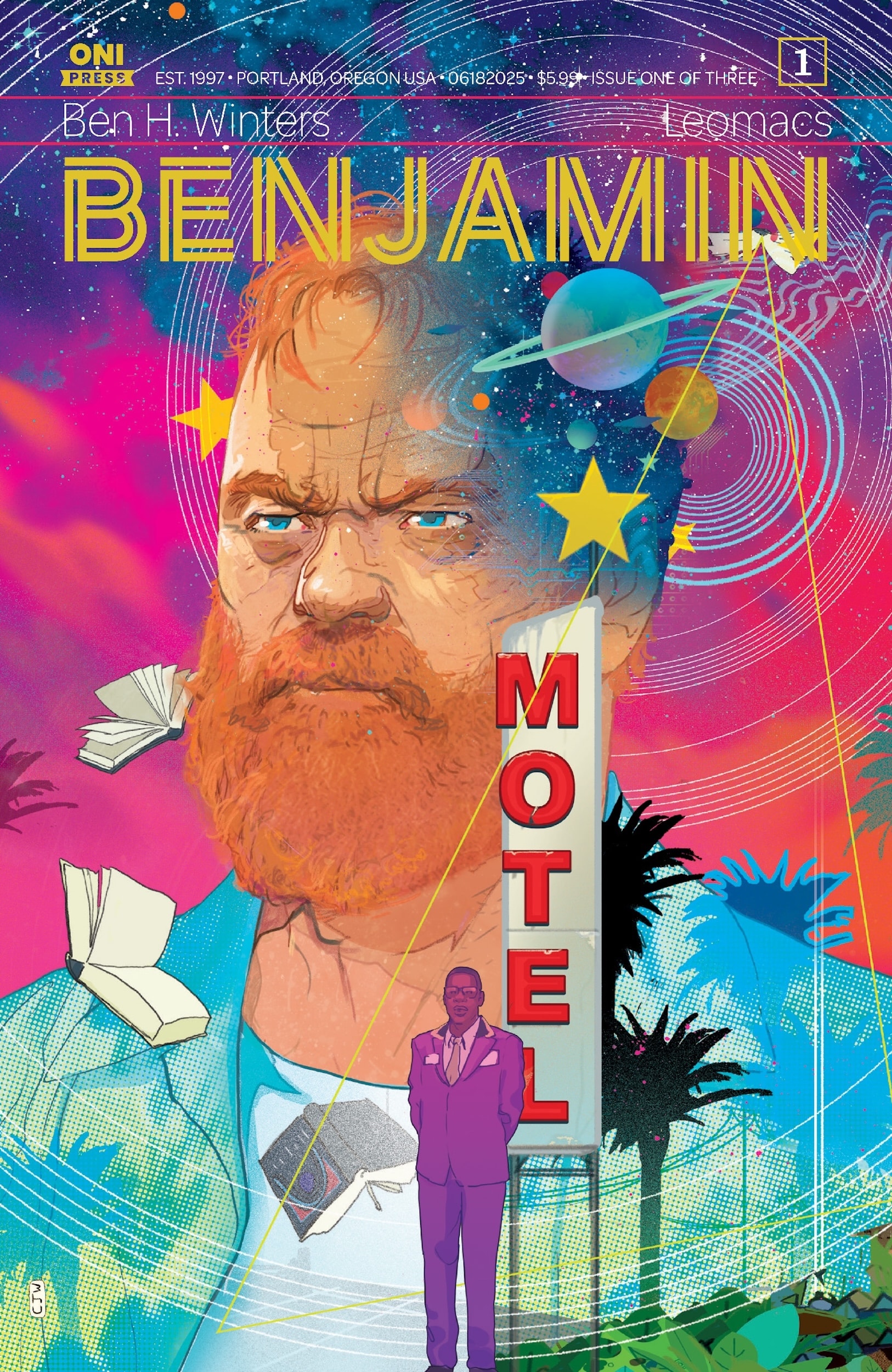
Read the official description below:
More than just a writer, more than just a science-fiction icon, Benjamin J. Carp was a cultural revolutionary. Across 44 novels and hundreds of short stories—including the counterculture classic The Man They Couldn’t Erase—Carp pushed the boundaries of literary respectability for the sci-fi genre and his readers’ perception of reality itself…until decades of amphetamine abuse and Southern California excess finally ended a mind-bending career that always just escaped mainstream success. He died in 1982.
Until 2025…when Benjamin J. Carp awakens, alive, in a burned-out motel on the fringes of Los Angeles. He remembers dying. He knows he shouldn’t exist. Is he a dream? A robot? A ghost? A clone? A simulation? In his own time, Carp pondered all of these scenarios intensely through his fiction—and, now, as he treks from Studio City to Venice Beach and onward into the paranoid sprawl of 21st-century Los Angeles, he will be called to investigate his greatest mystery yet: himself.
The Beat had the opportunity to email Winters to discuss his first creator-owned work, its inspiration, and the collaborative process with the book’s artist, Leomacs.
OLLIE KAPLAN: Benjamin pays homage to sci-fi greats like Phillip K. Dick, Ray Bradbury, Isacc Asimov, and others. How does Benjamin build on themes explored by these visionaries, and how do you think they resonate with contemporary issues?
BEN H. WINTERS: One of the astonishing things about great science fiction is that it creates its own language, its own sensibility, often its own reality, thereby avoiding the traps of datedness. So there is a true timelessness, and there is a timelessness to some of the deeper, wilder things these writers were obsessed with: what does it mean to be alive? What is consciousness? How do we know that what we are experiencing is real? Where did we come from and where will we go? All that good stuff. Deep, worthy questions that go back much further than the 1960s, and will go keep on being asked well into the future.
KAPLAN: Benjamin’s protagonist, author Benjamin Carp, has died and come back to life, a premise that piques my interest as someone who’s had an NDE and vividly remembers their own death (and resurrection). Have you ever had your own near-death experience?
WINTERS: Once, I was playing bass guitar at an outdoor venue called Fort Reno, in Washington, D.C., and it was lightly raining, and I was very briefly very mildly electrocuted by my amplifier. I don’t think I came close to death, but it was very sobering to note that none of my bandmates stopped playing.
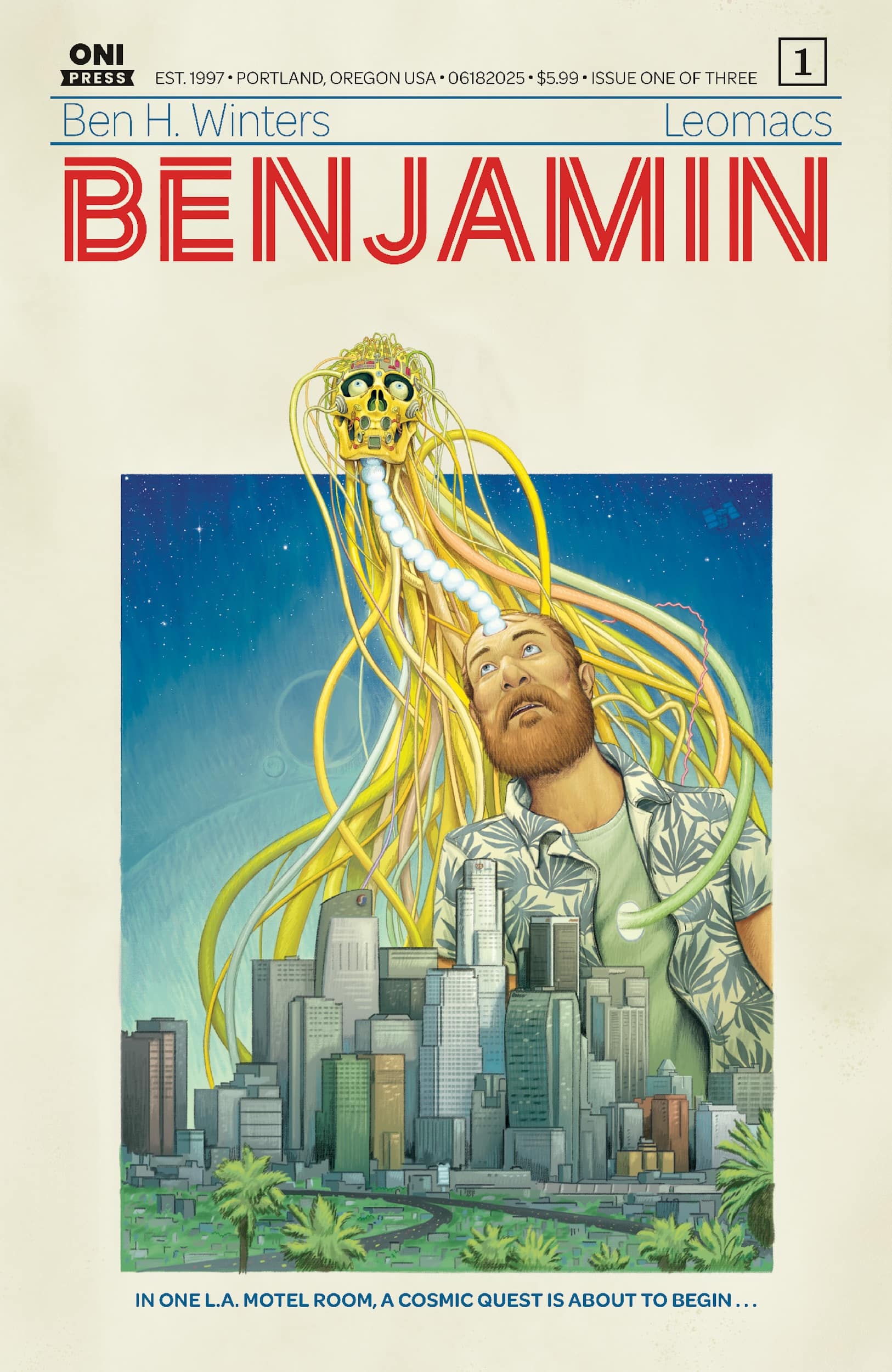
KAPLAN: What inspired you to create this character? Is he named after you?
WINTERS: I think the biggest direct influence was the book DIVINE INVASIONS by Lawrence Sutin, a deeply researched and deeply disturbing biography of Philip K. Dick. It’s always so fascinating, and a little depressing, to realize that these towering works of art that mean so much to us were created by such imperfect and sad people. The character is not named after me; I just think it sounded right. Although now that you mention it, I do happen to also be a grumpy middle-aged genre writer, so who knows?
KAPLAN: Oni Press EiC Sierra Hahn described the book to THR as “rich, heartfelt, hilarious, and at times tragic in its examination of one of the greatest diseases Americans are facing today: loneliness.” Like Pickleball, will this comic cure male loneliness, or is it a symptom of the disease? (I quip, but I also can’t wait for your answer.)
WINTERS: This comic will NOT cure male loneliness, but it also won’t screw up your knees, so it’s got one up on Pickleball, at least. I’m grateful to Sierra for the compliment (and for editing the hell out of this thing), and I agree with her that loneliness is in my mind—not only the contemporary ennui and sense of disconnection that has shadowed us all since COVID-19, but the deeper and unshakable truth of life: we’re all alone out here. The question is, what do you do with that? How do you find purpose? That’s the real theme of the book. (This is where my protagonist would roll his eyes and call me pretentious.)
KAPLAN: Can you describe your collaboration with artist Leomacs and how their visual style complements your narrative?
WINTERS: Leomacs was the perfect illustrator for Benjamin, because he is good at both things I wanted to do here—creating a gently realistic, lightly comic portrait of my curmudgeonly dingbat hero and his world…AND taking us in and out of the fantastical side-lands that the story slips into and out of, as Benjamin imagines distant planets and alternate dimensions. Leomacs’s talent, or part of it, lies in his range, and I am so grateful to have been able to take advantage of that.
KAPLAN: What unique storytelling opportunities does the comic book format offer compared to other media you’ve worked in?
WINTERS: I’ve been lucky enough to publish novels and also write for TV, and both have their pros and cons. What’s cool about comics is that they combine the narrative possibilities of fiction with the visual power of TV. If you want the next panel to be on Mars, it’s on Mars, and nobody has to build a set or hire a bunch of Martians. You just need an adventurous artist to make it so. There is an extraordinary freedom in that, which is bringing me a lot of joy – hopefully Benjamin’s readers will get it too!
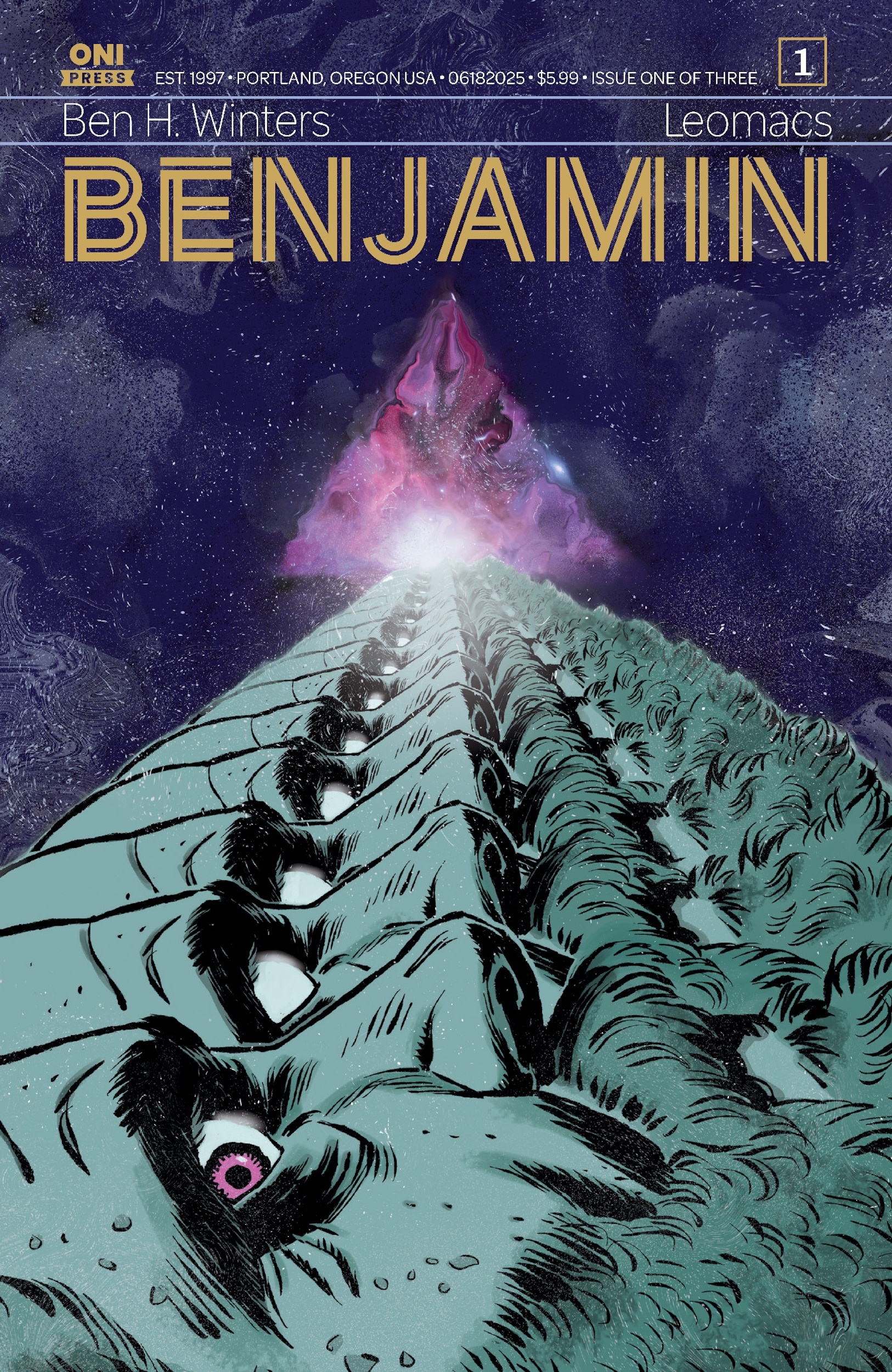
KAPLAN: What can readers expect in Benjamin’s upcoming issues? Also, can you elaborate on the prestige format and how it enhances visual and narrative storytelling?
WINTERS: Well, in the first issue, Benjamin is dead, but now he’s back, and he has to figure out what he’s doing back in life. He’s drafted the sweet lost boy, Marcus, who works at the hotel, to help him. Each subsequent issue, he gets closer to the answer, as he and Marcus wander around an increasingly bizarre and impossible Los Angeles. Just like the real one!
KAPLAN: After working on FX’s Marvel Comics-inspired series Legion, this is your second foray into writing comics. Can you tell me more about your personal history with the medium—when did you start reading comics, any formative comic book memories, why you wanted to start writing your own comics, etc.?
WINTERS: Oh wow—my particular coming of age comics-wise coincided with the J. M. DeMatteis/Griffin era of the Justice League of America. So, along with Fugazi and Elvis Costello, my cultural touchstones were Booster Gold and Blue Beetle. I loved the goofiness combined with heroism, and I think it’s defined my work over subsequent decades, from my most recent novel (Big Time) right down to Benjamin.
Man, you just made me realize something!
KAPLAN: Is there anything else you would like to add?
WINTERS: Just thank you so much!
Check out the preview pages for Benjamin below:
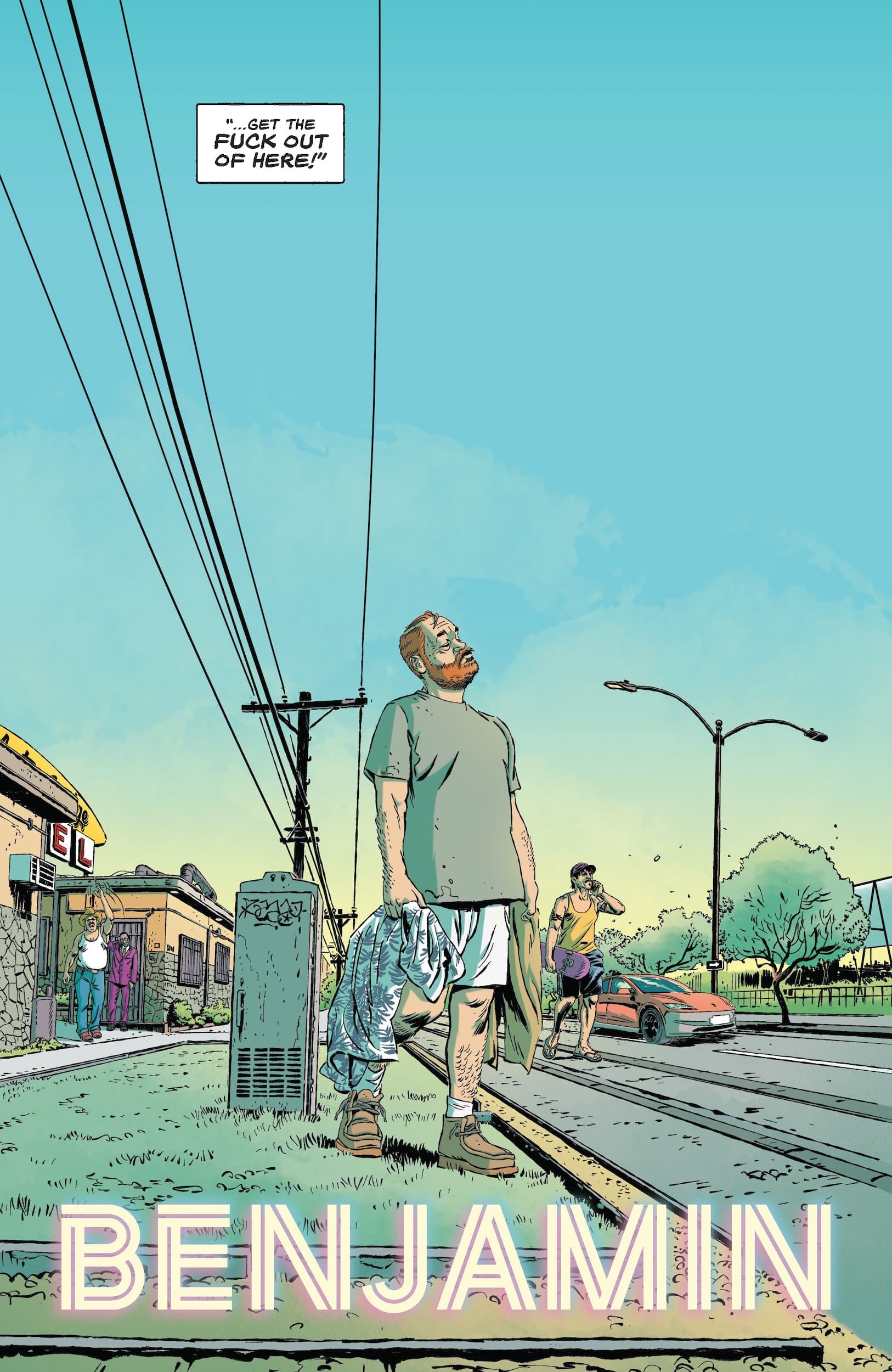
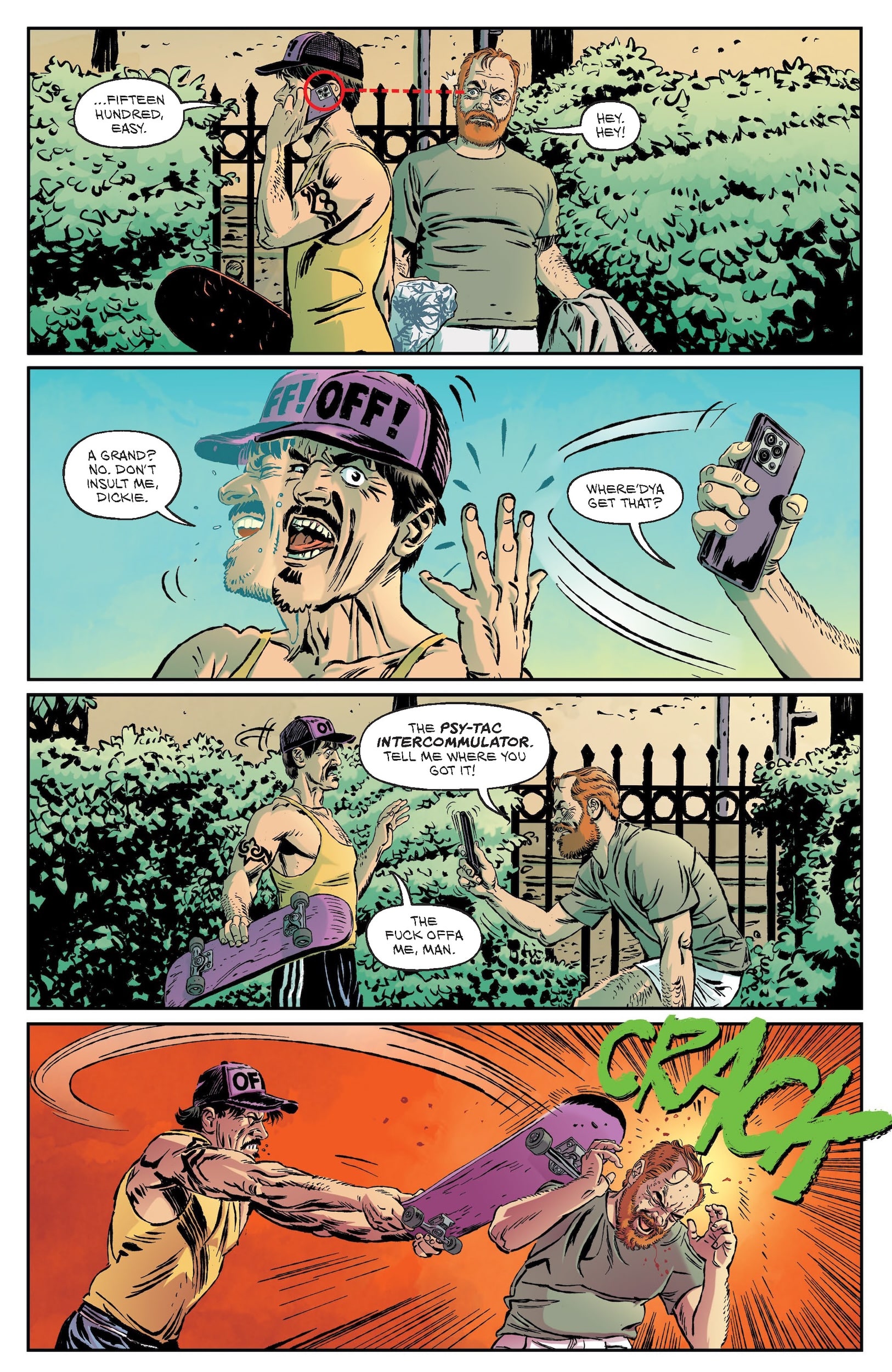
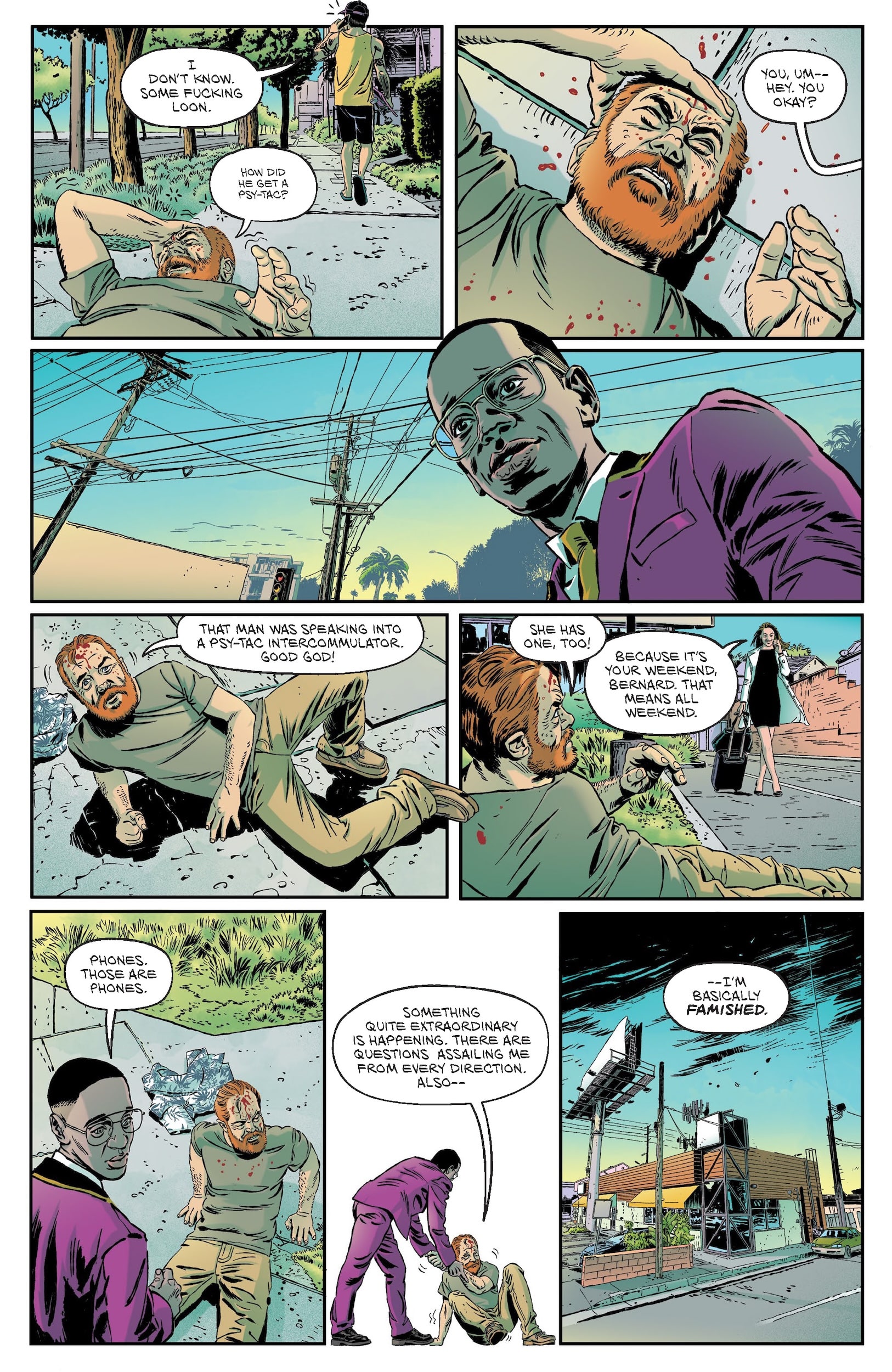
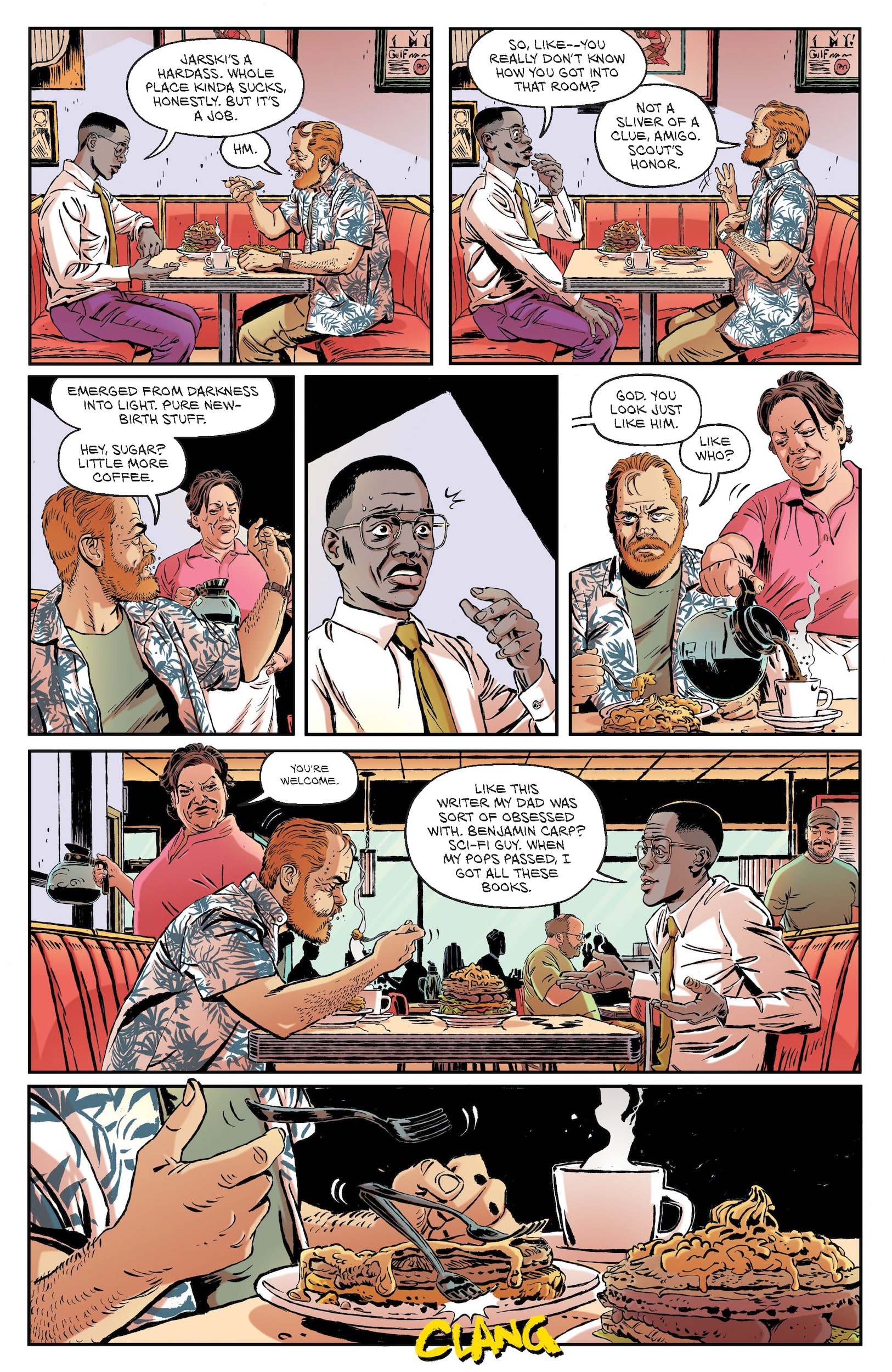
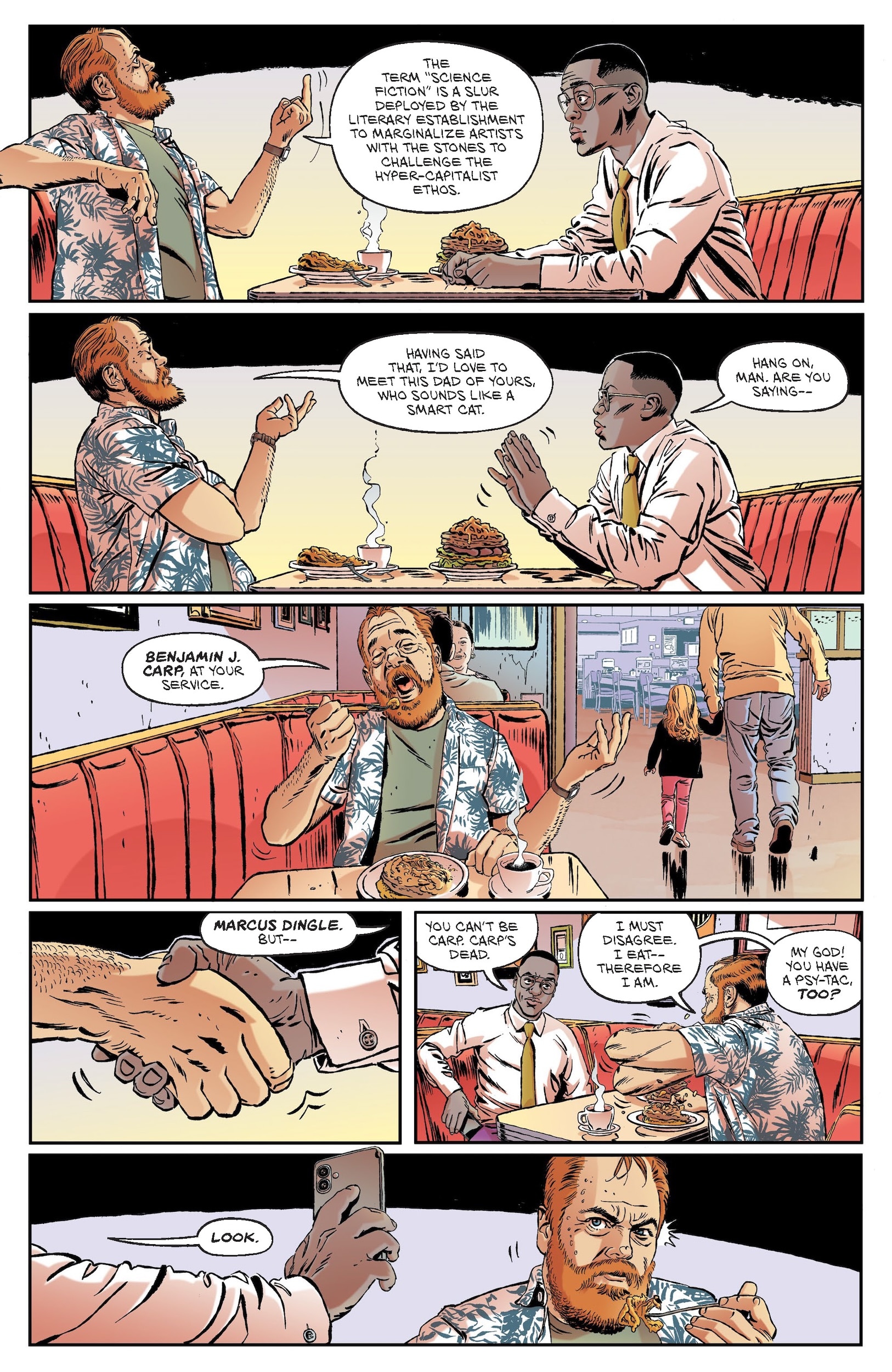
The first of three transcendent, prestige-format chapters of Benjamin, from writer Ben H. Winters and artist Leomacs, will arrive in comic shops everywhere on June 18, 2025.

